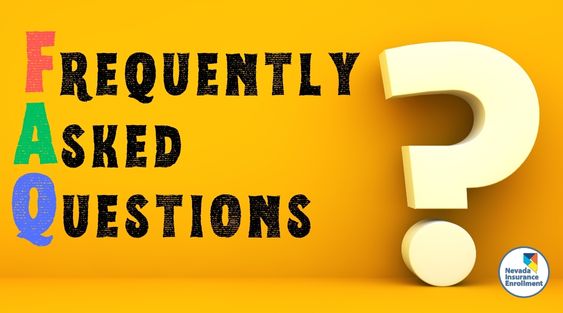
Auto Insurance (FAQ)
Answers to Common Auto Insurance Questions

Categories: Frequently Asked Questions (FAQ)
Frequently Asked Insurance Questions (FAQ)
Auto Insurance
Our Auto Insurance Frequently Asked Questions section will help you understand auto insurance terms and options specifically focused to Nevada residents. You’ll find clear, concise answers to common questions about coverage types including liability, collision and comprehensive, premium costs, deductibles, discounts for safe driving or bundling, claims processes, and Nevada’s minimum insurance requirements. Tailored for Nevada drivers, our FAQ pages provide guidance to ensure you meet state regulations and protect your vehicle effectively. Can’t find the answer you need? Submit your question to our licensed insurance experts for a personalized, detailed response. Explore the sections below for reliable auto insurance questions and answers designed to meet your needs.
References
The following reputable sources provided information for this FAQ section:
- Nevada DMV
- Nevada Division of Insurance
- Insurance Information Institute
- National Association of Insurance Commissioners
Call or Click to Receive a Quote
(702) 898-0554
Auto Insurance Quotes
Auto Insurance Agent
Call for FREE Help
(702) 898-0554
The yellow search bar below only targets inside this page. Inside this AUTO insurance FAQ category.
It will search all the Auto Insurance FAQ’s.
Auto Insurance
-
Can you drive legally in Nevada without auto insurance?
No. Insurance requirements for registration mandate proof of insurance before you register your car. Nevada law requires minimum liability coverage to protect others if you are at fault in an accident. This ensures compliance and safeguards your finances from unexpected costs. Read More: https://www.nevadainsuranceenrollment.com/auto/insurance-requirements-vehicle-registration-nevada/ -
What is Minimum Liability Coverage?
Nevada requires minimum liability coverage of 25/50/20: $25,000 for bodily injury per person, $50,000 per accident for bodily injury, and $20,000 for property damage. This coverage pays for damages you cause, like repairing another driver’s car or covering medical bills. Read More: https://www.nevadainsuranceenrollment.com/auto/liability-coverage/ -
How Do I Prove I Have Insurance?
To meet insurance requirements for registration, you need evidence of insurance from a licensed carrier. You can present a printed card or an electronic version on your phone, but out-of-state policies are not accepted. The policy must list your vehicle’s Vehicle Identification Number (VIN) and match the registration names. Carry proof while driving, as law enforcement may request it during traffic stops or random checks. If using an electronic version, you are responsible for device issues during inspections. Read More: https://www.nevadainsuranceenrollment.com/auto/insurance-requirements-vehicle-registration-nevada/ -
How Does Nevada Verify I Have Insurance?
Nevada’s ‘LIVE’ (Liability Insurance Validation Electronically) program electronically monitors insurance compliance. Insurers report policy details to the Department of Motor Vehicles (DMV), which verifies coverage in real time. If your insurance lapses, NVLIVE flags it, triggering a verification request. You must provide proof of coverage promptly to avoid suspension. Read More: https://www.nevadainsuranceenrollment.com/auto/insurance-requirements-vehicle-registration-nevada/ -
What is the registration process in Nevada, and what documents will I need?
Meeting insurance requirements for registration begins with proof of insurance. For new vehicles from Nevada dealers, submit the Electronic Dealer Report of Sale (EDRS) with insurance proof. Online registration via the DMV website is convenient for eligible vehicles. In-person registration at DMV offices requires an appointment, particularly for VIN inspections on out-of-state or private-sale cars. New residents have 30 days to register, and private sales need a Bill of Sale and insurance within 30 days. Documents You Need To register, bring these: Nevada Evidence of Insurance, title or Bill of Sale, emission inspection report (required in urban areas like Las Vegas or Reno), current odometer reading, and application form (VP 222). VIN inspections are mandatory for out-of-state or private sales. Exemptions apply to new vehicles for the first three registrations or hybrids for five years. Mopeds and trailers do not require insurance, but cars do. Missing documents or insurance can delay or deny registration, so double-check everything before your DMV visit. Read More: https://www.nevadainsuranceenrollment.com/auto/insurance-requirements-vehicle-registration-nevada/ -
What Happens If I Let My Insurance Lapse?
Nevada allows no grace periods - a single day without insurance suspends your registration. The NVLIVE program detects lapses, sending a verification request. Failure to respond leads to a suspension notice, prohibiting legal driving. Driving during suspension risks plate confiscation, vehicle impoundment, or fines. To reinstate, provide current insurance proof and pay the fees. Cancel your registration before dropping insurance to avoid penalties. Penalties and Reinstatement Costs Penalties for lapses depend on duration: 1-30 days ($250 fine), 31-90 days ($500), 91-180 days ($750), and 181+ days ($1,250) for first offenses, with higher fines for repeats. Lapses over 91 days require an SR-22 form for three years to prove fiscal responsibility. License suspension may occur after 30+ days, adding reinstatement fees ($250-$750) and fines ($250-$1,000). Reinstatement requires an in-person DMV visit with insurance proof. Read More: https://www.nevadainsuranceenrollment.com/auto/lapse-auto-insurance-coverage/ -
Why Do Younger Drivers Pay More For Auto Insurance?
Young drivers, particularly those under twenty-five, often face higher premiums due to limited experience and a greater likelihood of accidents. For example, a 20-year-old may pay more than a 40-year-old with a similar vehicle and driving record. Teens are more likely to speed, tailgate, or engage in distracted driving, such as texting, which increases their risk profile. Data shows that drivers aged 16-19 are three times more likely to be involved in a crash than older drivers, contributing to higher rates. Read More: https://www.nevadainsuranceenrollment.com/auto/age-gender-affect-auto-insurance-premium/ -
Why Do Older Drivers Pay less For Auto Insurance?
As drivers age, premiums typically decrease after age 25 with a clean driving record, reflecting greater experience. However, for drivers over sixty-five, rates may rise due to age-related factors like slower reaction times, vision changes, or medical conditions that can affect driving safety. For instance, a 70-year-old with low mileage may still face higher premiums if health issues increase risk. Senior drivers can mitigate this through safe driving habits and specialized courses. Read More: https://www.nevadainsuranceenrollment.com/auto/age-gender-affect-auto-insurance-premium/ -
Why Does My Gender Affect My Auto Insurance Cost?
Gender can influence your insurance rates, though its role is limited in Nevada. Historically, young male drivers paid higher premiums than young females because males were more likely to engage in risky behaviors, such as speeding or driving under the influence. For example, a 20-year-old male’s premium may exceed his 45-year-old mother’s, even with similar driving records, due to data showing males often drive pricier cars or skip seatbelts. Nevada regulations require insurers to justify rate differences with actuarial data, prioritizing factors like driving history over gender, which reduces its impact on your premium. Read More: https://www.nevadainsuranceenrollment.com/auto/age-gender-affect-auto-insurance-premium/
